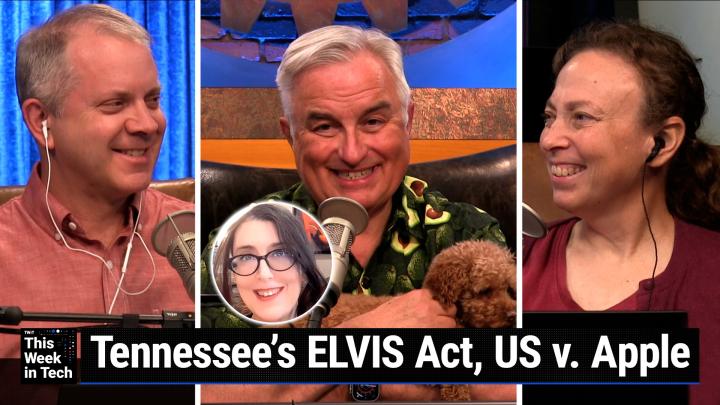The Various Angles of United States v. Apple
Created with AI, edited by humans.
In a lively recent episode of This Week in Tech, host Leo Laporte and guests Brianna Wu, Cathy Gellis, and Rob Pegoraro engaged in a nuanced and multifaceted discussion about the U.S. Department of Justice's antitrust lawsuit against Apple. The panel explored multiple angles of this high-stakes legal battle, offering diverse perspectives that captured the complexity of the issues at hand.
Right off the bat, the discussion delved into the DOJ's central allegation – that Apple has intentionally created a "walled garden" ecosystem to maintain monopolistic control over the iOS app distribution and in-app payment systems. Laporte shared excerpts from the DOJ's complaint, including a damning email exchange where former Apple CEO Steve Jobs expressed a desire to force developers to use Apple's payment system, effectively locking in both developers and users.
While acknowledging Apple's deliberate strategies, Gellis, an attorney and tech policy writer, advocated for a nuanced approach. She warned against binary thinking, emphasizing that the situation might not be as straightforward as painting Apple as the villain or the government as the hero. Gellis urged caution, questioning whether the proposed remedies might create more problems than they solve, particularly concerning potential impacts on free speech and editorial discretion.
Pegoraro, a tech journalist, echoed some of the DOJ's concerns, citing Apple's long history of "greedy rent-seeking behavior," such as the controversial 30% cut on digital transactions, even for content not hosted by Apple. However, he also raised doubts about whether the DOJ could successfully argue that Apple holds a monopoly, given its market share of around 55% in the U.S. smartphone market.
Wu, a video game speedrunner and tech policy commentator, expressed support for increased government regulation of big tech companies, asserting that democracy itself is weakened by the lack of oversight. She challenged Apple's justifications for privacy and security, arguing that the company selectively compromises these principles when it suits its financial interests. Wu advocated for interoperability standards and data portability, which she believes would foster competition and innovation while placating antitrust concerns.
The panelists also acknowledged the potential benefits of Apple's integrated ecosystem while questioning the company's motives and methods. They navigated the delicate balance between fostering innovation and preventing monopolistic practices, underscoring the need for nuanced policies that serve the best interests of consumers and the broader tech ecosystem. As the DOJ's case against Apple progresses, the perspectives shared on This Week in Tech offer a glimpse into the multifaceted debates surrounding tech monopolies, consumer protection, and the role of government in an increasingly digital world.
Become a subscriber and never miss an episode: This Week in Tech
